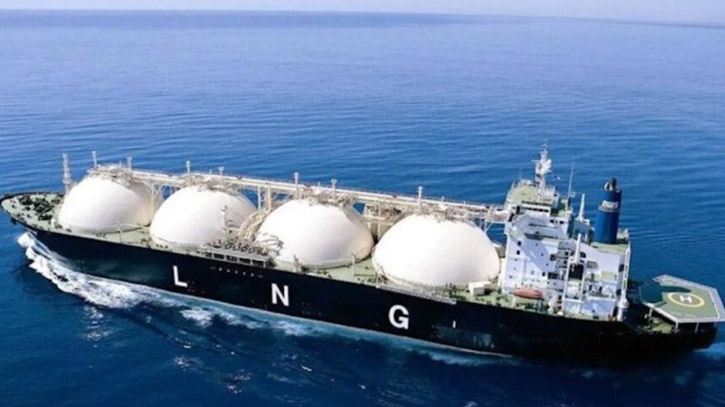
Photo : Collected
Following the previous government’s policy, the interim government has to rely on import of LNG, Coal and fuel oil to feed the mega power plants of the country.
According to the Power Cell, a mega power generation project with a capacity of 1,320 MW is going to be added to the national grid which will burn imported coal.
The ultra super critical technology coal-fired power plant has set up at Kalapara in Patuakhali is now awaiting the approval of the Power Division and Bangladesh Power Development Board (BPDB) to start production. The power plant is scheduled to be connected to the national grid in
December. If it goes into production, the total capacity of coal-based power plants installed in the country will stand at 7,312 MW.
The country's coal-fired power plants are suffering from an energy crisis. Sufficient gas or coal cannot be provided to continue production in these power plants, thus the country, including industry, is suffering for load shedding. Besides, the relationship with Indian Adani has calmed down. Resulted, 1600 MW of imported power became uncertain.
Energy expert Prof. Izaz Hossain told the Daily Messenger, 'Ultra super critical technology power plants were approved mainly to reduce the cost. But due to the lack of long-term and consistent plans for the import of energy for these power plants, a crisis has arisen. They need an exact plan on how to execute them.”
The power plant is jointly constructed by RPCL-Norinco International Power Limited (RNPL). Meanwhile, the power plant has stockpiled 128,000 tonnes of coal for commissioning the plant. The company is going to invite tenders for long-term coal supply. According to Power Cell data, the power plant will be connected to the grid in December but its first unit (660 MW) will go into production in March next year. RNPL wants to supply electricity at full capacity from the plant by next June. However, officials related to the project said that they are ready to go into production anytime if BPDB or power department wants and gets back feed power connection.
Besides, the government has initiated the import of LNG from different countries which have agreements with Bangladesh that were signed by the previous government.
The advisory committee on government purchase Wednesday approved the import of two cargoes of liquified natural gas (LNG) from the spot market.
Singapore-based MS Gunvor Singapore PTE will supply per million British thermal unit of the consignment at $13.57 and $13.77.
The first consignment will cost Tk 640.15 crore while the second one Tk 649.59 crore, according to the meeting minutes.
"The committee approved the consignments after getting quotations from the companies which signed the Master Sale and Purchase
Agreements with Petrobangla following the Public Procurement Rules 2008," reads the minutes.
The first consignment will cost Tk 640.15 crore and the second one Tk 649.59 crore, they informed.
Experts say that the country's coal-based power plants continue to suffer from production crisis because no specific and long-term plan has been made regarding the import of fuel or the provision of necessary funds for this. Due to lack of planning and excessive dependence on imports in the energy sector, these large capacity power plants are not running now properly.
Md. Tuhin Ahmed, Lecturer of Economics, Mawlana Bhashani Science and Technology University said, in recent years, the landscape of the energy sector in Bangladesh has witnessed significant changes. The rising demand for natural gas, coupled with the difficulties in gas exploration and production, has resulted in increasing reliance on import of liquefied natural gas (LNG).
However, the price of LNG in the global market has been turbulent in the recent years. In 2020, LNG price plummeted to as low as US$ 2.0 per Million British Thermal Units (MMBtu) as a result of the shocks of the Covid-19 pandemic.
And in October 2021, it soared to an unprecedented all-time high of US$ 56 per MMBtu. This fluctuation and increasing volatility of the LNG market has complicated the energy landscape further. Recent foreign exchange shortages have exacerbated the situation. Thus, the rising LNG import has emerged as a potential threat to Bangladesh's energy security.
Messenger/Disha








